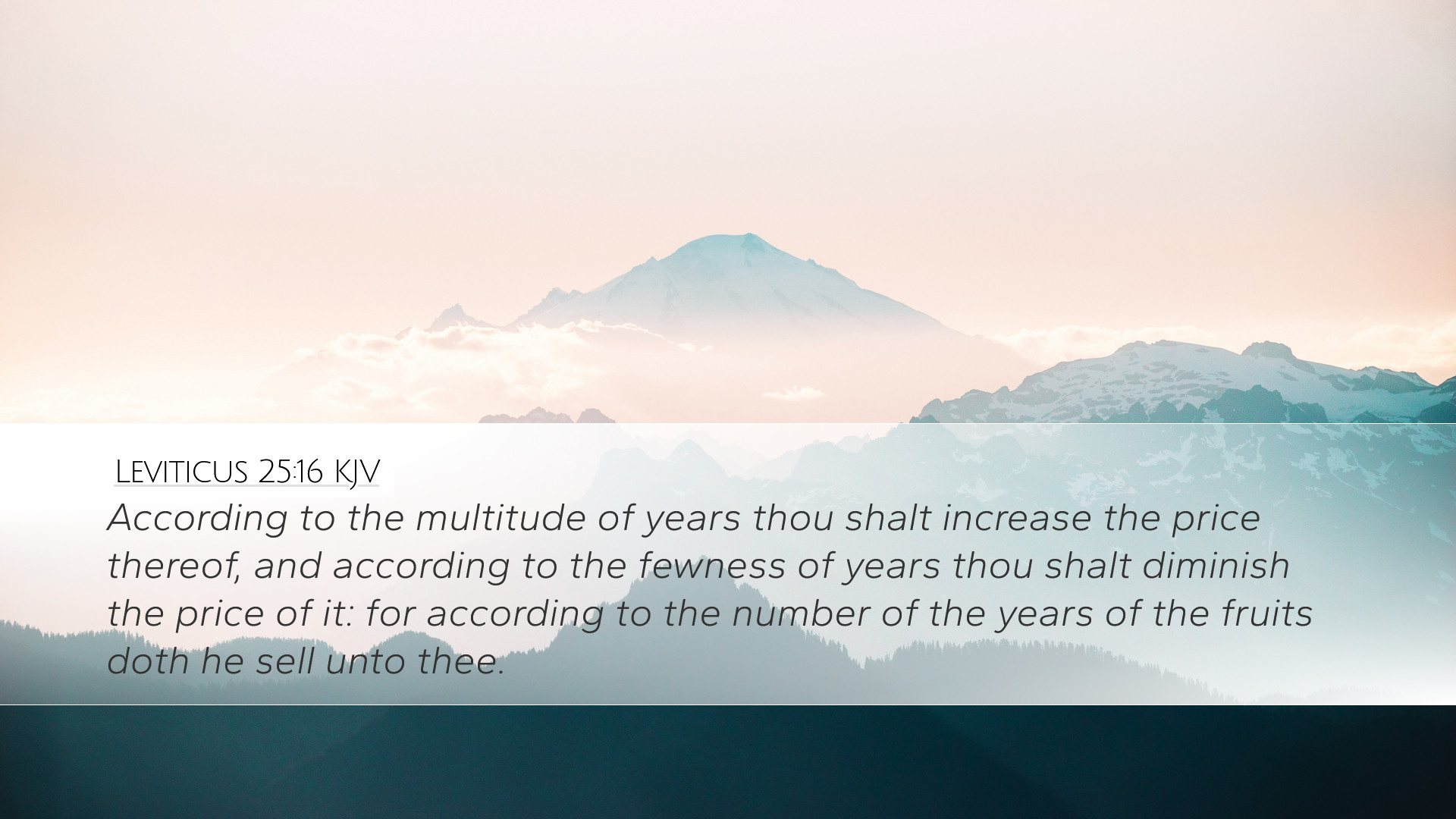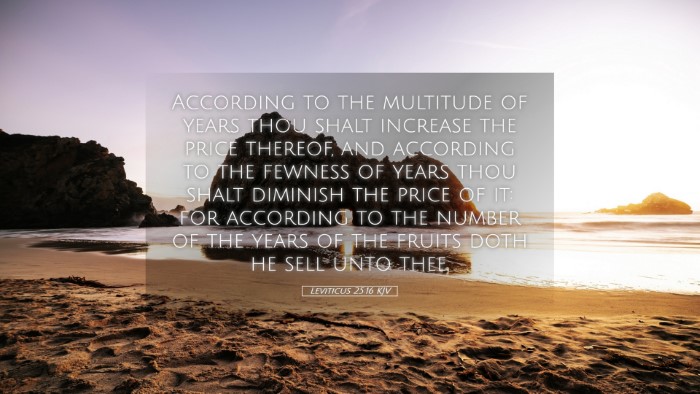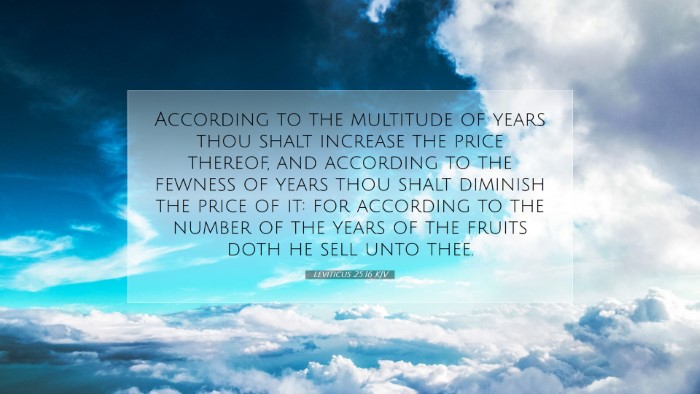Commentary on Leviticus 25:16
Verse: "According to the multitude of years thou shalt increase the price thereof, and according to the fewness of years thou shalt diminish the price of it: for according to the number of the years of the fruits dost thou sell unto him."
Introduction
This verse is a part of the broader context of the Year of Jubilee and the regulations governing the sale of land and property in ancient Israel. Leviticus 25 addresses the economic and social aspects of the Israelite society, emphasizing the importance of justice, equity, and divine ownership of the land.
Exegesis of the Text
The regulation outlined in Leviticus 25:16 pertains specifically to the economic transactions regarding land, highlighting the role of the number of years remaining until the next Jubilee Year in determining the fair price of property. The emphasis here is on the dependence of value on time and God’s overarching sovereignty over both the land and the people.
1. Economic Equity
Matthew Henry notes that this verse establishes a fundamental principle of economic equity, asserting that the value of land is not solely determined by market dynamics, but rather by the remaining productivity of the land in relation to the Jubilee system. This provision serves to prevent exploitation among the Israelites, ensuring that no one unjustly profits from the misfortunes of others.
2. Connection to the Year of Jubilee
Albert Barnes remarks on the significance of the Jubilee, indicating that the land ultimately belongs to God, and humans serve as stewards of His creation. The purpose of calculating land value based on years left until the Jubilee serves to remind the Israelites of their transient possession of the land, reinforcing their obligation to treat one another justly.
3. The Role of God's Law
Adam Clarke emphasizes the spiritual dimension of this law. He asserts that God's commandments, including this economic regulation, are intended to foster fairness and communal welfare. The law recognizes human frailty and aims to ensure that social justice prevails, which can lead individuals to rely on God's provision rather than merely on their financial capacity.
Theological Reflections
The theological implications of Leviticus 25:16 extend far beyond economic regulations. They invite exploration of several fundamental themes:
- Divine Ownership: The land’s pricing emphasizes that it is not merely personal property but sacred heritage belonging to God.
- Justice and Community: The collective well-being takes precedence over individual profit, promoting communal responsibility and fairness.
- Restoration and Hope: The Jubilee concept embodies God's hope for restoration, reminding His people that all debts can be erased, and lands returned.
- The Nature of Time: The reference to 'multitude of years' and 'fewness of years' underscores the temporality of earthly possessions compared to eternal values.
Practical Applications
The insights gained from this verse can inform various aspects of modern ministry and personal faith:
- Church Economics: Churches can adopt principles of fairness and equity in their financial dealings, ensuring that no member is exploited in transactions.
- Social Justice Advocacy: Incorporating biblical principles of justice in advocacy work can lead to more equitable treatment of marginalized communities.
- Spiritual Stewardship: Acknowledging God’s ownership of all things fosters a generous spirit among believers, encouraging them to view their possessions as tools for God’s work.
- Community Engagement: Promoting restorative practices within communities can reflect the Jubilee spirit, healing divisions and aiding those in need.
Conclusion
In summary, Leviticus 25:16 provides vital insights into the balance between economic transactions and divine principles of justice and stewardship. Both historically and theologically, this text serves as a guide for pastors, students, theologians, and scholars to engage with biblical principles that emphasize fairness and communal well-being over mere financial gain.


